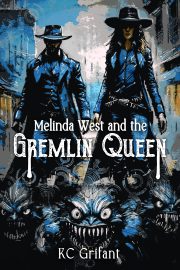Tidbits
 Posted by Victoria Strauss for Writer Beware
Posted by Victoria Strauss for Writer Beware
The Gloves Are Off!
Earlier this week, I blogged about the accelerating trend of literary agencies turning publishers in order to re-issue their clients’ backlists. There’s gold in the backlist (see this interesting article about writers who’ve taken things into their own hands and are re-issuing their backlists themselves), and it’s not surprising that literary agencies want a slice of that pie.
Publishers want it too, though–which is why, in late 2009, Random House US sent a letter to literary agencies claiming that its older contracts gave it the exclusive right to publish in ebook form, even where the contracts pre-dated the existence of digital formats and/or their language did not mention electronic rights. This precipitated some controversy, since literary agents, for the most part, did not agree.
How threatened do publishers feel by agencies’ aggressive moves into publishing? Well, according to a report today in The Bookseller, Random House UK has done an end run around prestigious literary agency Sheil Land, directly approaching author Tom Sharpe to secure digital rights to his backlist.
It is not clear whether the development is a retaliation for Land’s decision to publish Catherine Cookson’s extensive backlist under her own imprint Peach Publishing, having offered the Cookson estate a greater share of the royalty rates. Transworld, Cookson’s print publisher, is also owned by Random House. At the time Land named Sharpe as one of a number of authors who she might also consider taking direct.
Sheil Land is not amused, and they’re the only ones.
One agent, who preferred not to be named, described the direct approach as a “clear breach of ethics”. [Anthony] Goff, an agent at David Higham and president of the AAA, said he could not comment on the particulars of this arrangement, but stressed the principle was very clear.
“Once an author has a deal with an agent, then for a publisher to go behind that agent’s back for financial or contractual discussions is totally unacceptable. It is not just that agents don’t want it, neither do authors. There is a reason agents are employed as advisers.”
Publishers, unsurprisingly, did not feel the same way.
A rival publisher said the development was an inevitable consequence of the decision of some agents to begin publishing. “What did she expect? Sheil Land went into competition with Random House, not the other way round.” A second publisher added: “Can they not see the irony in wanting to respect convention in some areas, but not in all?”
For me, this was the most interesting publishing story of the week. Backlist is becoming a battleground–and as always, authors are in the middle.
Bowker Issues 2010 Publishing Stats, and POD is King
Bowker has released its annual report on US book publishing. Over 3 million new titles were issued last year. Traditional production accounted for around 316,000 titles, an increase of 5% over last year. POD, a.k.a. “the non-traditional sector,” continues to boom–to put it mildly, with an astonishing jump of 169%, from 1,033,065 titles issued in 2009 to 2,776,260 in 2010. Wow.
As in 2009, the bulk of the POD titles–well over 2 million of them–were put out by companies that specialize in re-issuing public domain works, such as BiblioBazaar, which issued a staggering 1,461,918 titles last year. Self-published books make up only a small fraction of the POD total, with CreateSpace leading the way with 34,243 titles, and then Lulu with 11,127 titles, and then various Author Solutions brands (AuthorHouse, Xlibris, etc.).
Bowker’s numbers reflect only books with ISBNs. Not all self-pubbed books have ISBNs–Blurb, for instance, doesn’t issue ISBNs at all, and ISBNs are optional for Lulu authors. Ebooks are also not included–but if they were, they’d surely add a million or more to the total. It’s altogether mindboggling.
What Amazon Didn’t Mention
Yesterday, Amazon revealed that for every 100 print books, it is selling 105 Kindle books. As always with Amazon announcements of this sort, actual numbers were absent.
There’s no doubt this is a significant development. But like everything else, it needs to be placed in context. Sales numbers and sales revenues are two different things. Amazon may be selling more ebooks than p-books, but ebooks tend to cost less than p-books–in some cases, hugely less–so print book revenue undoubtedly still tops ebook revenue by a substantial margin, and will likely continue to do so for some time. Amazon isn’t ditching print anytime soon.
With Ebook Pricing, is Cheap Always Better?
An intriguing blog post from author Diane Duane, who has been publishing some of her backlist to Amazon. When Ms. Duane raised the price on one of her ebooks from $1.99 to $4.99, sales jumped.
Could it be that, when you’re an author who’s been established in print for a while, that it’s not smart to price your book too low? Is it possible that people look at it and say, “Oh, this thing must be cheap because it’s no good”, and pass by on the other side? Or is this just some seasonal effect, or some other kind of coincidence?
It’ll be interesting to see.
Bottom line: no one really knows what works. Strategies that are successful for some will not be for others, and vice versa (one of the very basic mistakes new authors make is to assume that the cheery marketing advice that’s everywhere these days is going to work for them in a predictable way). This is a long-standing truth of the book business–proving that, even in the midst of a paradigm shift, some things just don’t change.


